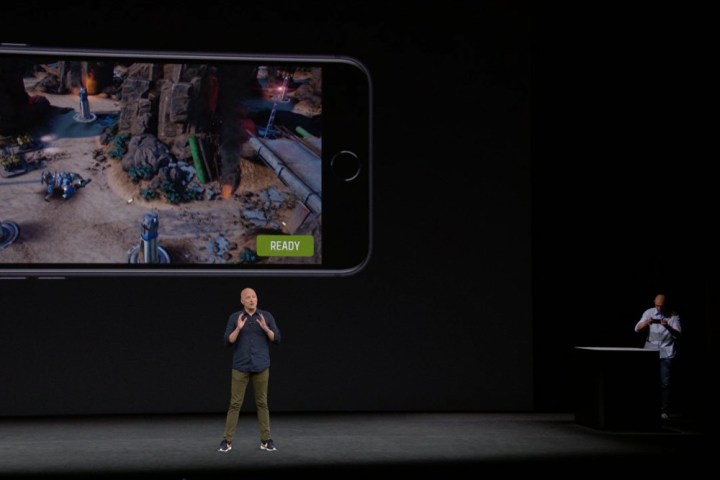
Apple is billing the iPhone 8 and iPhone X as the first smartphones designed with AR in mind. Their cameras have been calibrated for the technology, and the phones are capable of delivering crisp, 60fps visuals even in low-light conditions, and they are outfitted with a new gyroscope and accelerometer to track motion accurately — something that developers have been eager to see.
The A11 Bionic is the jewel in the crown of these AR capabilities. Its CPU handles world tracking and makes sure that the scenes virtual objects are placed in are rendered consistently, its GPU outputs realistic graphics, and Apple’s custom-designed ISP handles lighting.
A few examples of apps developed to take full advantage of the AR hardware were shown off. Major League Baseball’s At Bat app layers player stats over a live view of the game while you’re at the stadium, which seems like a great way to merge the best aspects of broadcast coverage with the appeal of being in the crowd.
Sky Guide overlays a star map over the night sky, making it easy to spot individual constellations. We only saw brief glimpses of these apps, but if they work as flawlessly as they seemed to, they’ll go a long way toward demonstrating that AR is something of a gamechanger and not just a gimmick.
Directive Games demonstrated its new title, The Machines. It’s a multiplayer game where a landscape is virtually implanted on a flat surface in the real world, with players invited to move around the environment to gain a tactical advantage over the opposing force.
The Machines looks like an action-centric take on real-time strategy with a focus on the land grabs that make MOBA games so compelling. It’s set to be released via the App Store later this month.
Pre-orders on the iPhone 8, 8 Plus, and iPhone X are set to open on September 15, with the devices arriving a week later on September 22, while iOS 11 launches on September 19.


